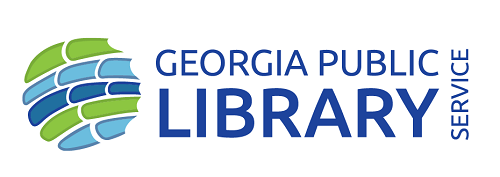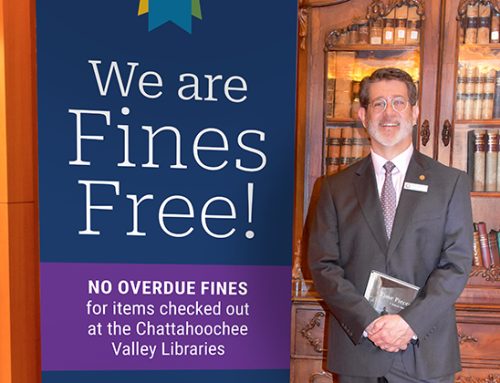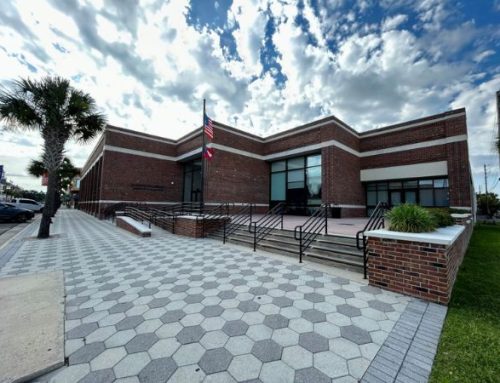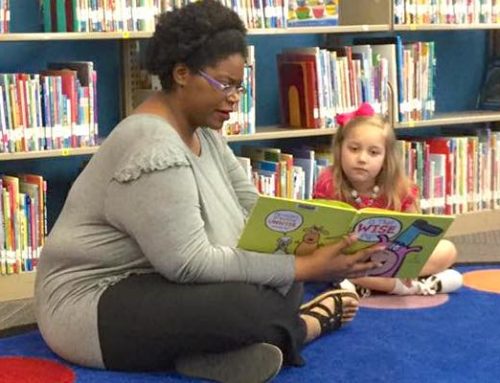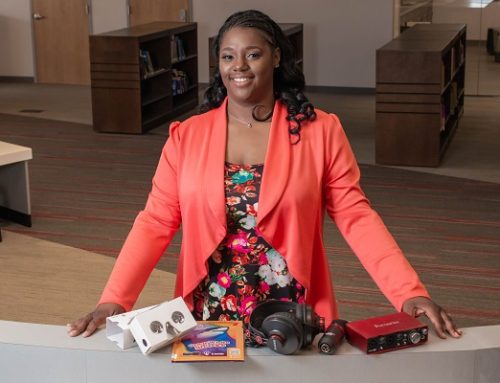
Thomas Jones, former director, Middle Georgia Regional Libraries
Few librarians have a career with the breadth of experience of Thomas Jones, former director of Middle Georgia Regional Libraries. From staff development to technical services to the PINES lending network, Jones’ work has impacted nearly all aspects of Georgia’s Public Libraries. This is extraordinary for someone who never intended to be a librarian.
In recognition of a career that lasted more than 40 years and impacted thousands of Georgians, Thomas Jones was selected as the recipient of the 2020 Lifetime Achievement Award.
Our Communications team interviewed him about his career, influences, and impact.
GPLS: Why and how did you get into librarianship?
T.J.: I’ve always been around libraries and books. My mother was a huge reader and she always read to us. Also, growing up in Macon, Georgia, there wasn’t a lot to do, so I read a lot. In elementary, I worked in the school library. Later in high school, I had the option of cutting grass or working at the library during the summer months. The choice was easy for me. I eventually ended up working as a page shelving books at the public library. That was the beginning of my library career.
GPLS: Did you consider any other careers?
T.J.: Definitely, I had no plans of being a librarian. I majored in biology and psychology in college and wanted to go into counseling or medicine. When I graduated and was looking for a job, none of the jobs in my field appealed to me. Since I was working at the public library, my director suggested I look into attending library school. He even shared information with me, and later helped me complete my application packet to library school in Colorado. I was accepted and even got a scholarship to attend. When I graduated, I was hired as a Reference Librarian at Middle Georgia Regional Libraries.
GPLS: Tell us a little bit about your career trajectory?
T.J.: I credit my director, Charles Schmidt, with giving me lots of different projects that kept me interested. I started off in reference, but ended up managing technical services and later became the IT director. I installed computers, wired libraries for the internet, and taught staff how to use software. This was around the time computers were being introduced in libraries. I did that work for about 20 years until I became director.
GPLS: How did you become a director?
T.J.: I didn’t want to become a director. My career had taken off and I had found a niche with technical services and IT. I really enjoyed cataloging books, installing computers and training staff how to use new technology and software. That’s what I did until I became deputy director. I didn’t think about becoming director until the then-director retired. I wasn’t selected the first time I interviewed, but became assistant director. I became director in 2008 and did that until I retired. I didn’t start with ambitions of being director, but my many years of experience working in multiple areas of the library system made me the best choice when the time was right.
GPLS: What were some of the challenges you faced when becoming director?
T.J.: I became director during the economic downturn of 2008, so I had to figure out how to continue to operate the library with a reduced budget. I had to figure out how to keep people employed, maintain services, and continue projects. I looked at every aspect of operations and figured out how to do things better and cheaper. This included talking to every staff member to understand how to best use them with the reduced budget. We changed culture, improved training, and made operations more efficient. By the time I retired, we were able to complete everything in our 5 year plan.
GPLS: What’s the best piece of professional advice you’ve ever gotten?
T.J.: My director, Charles Schmidt, always told me “keep it simple, stupid.” Don’t make things harder than what they need to be and try to reduce situations to their simplest points and try to deal with those. Charles was direct in his approach. If you approached him with an idea, he wasn’t interested in every minute detail. He wanted to know what you want to do, how do you plan to do it and what do you need to get it done. Then he worked on allocating resources.
Herbert Tuggle, a librarian at the former Amelia Hutchins Memorial Library, helped me understand the importance of customer service. He taught me that we were there to serve the public and no one should leave without the information they came for or a referral to where they can get it. Herbert taught me how to relate to patrons and stressed the importance of learning the library collection. If you know what’s in your collection, you can help your patrons better.
GPLS: What advice would you give to someone considering librarianship?
T.J.: It’s important to be flexible because libraries are constantly changing. You have to appreciate people and you have to appreciate information in all of its forms, including digital and print. You must appreciate history and its impact – respect the past and embrace the future. Most of all, you need to balance expectations with workload. It’s a job where you typically don’t make a huge amount of money, so you have to love the work.
GPLS: What advice would you give someone interested in pursuing a leadership role in libraries?
T.J.: A library is a business like any other business, and you need several skills to be successful. As a director, you are responsible for everything that happens with that library. You need to understand budgets, grant writing, accounting, management (people and resources), and legal issues. It helps to have a business background or take some business courses. You need the ability to work with and communicate with library boards in terms they understand to help them understand how libraries work. Some other things to prepare for are working with community agencies for programming, and presenting and defending budgets to local government leaders.
GPLS: What are some accomplishments you are most proud of?
T.J.: I accomplished so much during my career, but some of the things that stand out are:
- Improving the Genealogy department
- Helping start the PINES lending network
- Piloting projects with the Digital Library of Georgia
- Implementing digitization grants from the Knight Foundation
- Securing grants to redo the computer lab in main library
- Redoing multiple floors of the Washington library
- Teaching classes (databases, GALILEO, Ancestry, Microsoft Office)
- Securing funds to rebuild the Twiggs County library during the economic downturn
GPLS: Why do you think libraries are important?
T.J.: Libraries play a key role in education. They supplement formal learning experiences and provide continuing education opportunities. All of us are lifelong learners, whether we know it or not, and libraries play a key role in that lifelong learning experience. Libraries can enhance whatever people are trying to learn. They are the great equalizer between the haves and have-nots and try to put everybody on a level playing field.
“All of us are lifelong learners, whether we know it or not, and libraries play a key role in that lifelong learning experience.”
